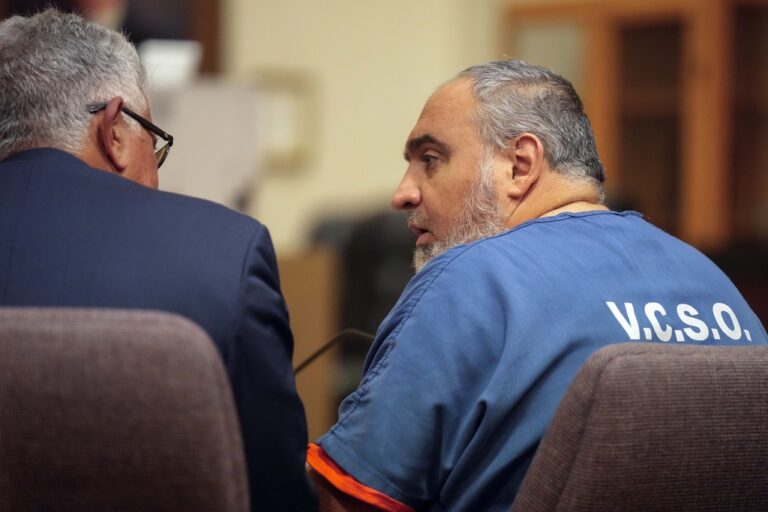By Rabbi Yair Hoffman for 5tjt.com
With due respect, the recent statement from former IDF brigadier general, MK Zvika Fogel (Otzma Yehudit), told to Galei Yisrael radio Monday morning that he wanted to see Huwara “shuttered and burned” needs to be condemned. It was, of course, said in response to Sunday’s murder of two Jewish youth, Har Bracha residents, 22-year-old Hillel Menachem Yaniv and 20-year-old Yagel Yaakov Yaniv – two brothers.
The clear-cut Talmudic view of the inherent harm and danger of vigilantism can be seen from the Maharsha’s explanation of the Gemorah in Bava Kamma (117b), where Rav Kahana took vigilante action against an informer (Moser). The Gemorah describes it as an incorrect action that required Kaparah – atonement on his part. Why? The Maharsha explains, because he performed this action out of vigilantism. Other Achronim understand this Gemorah in the same fashion.
Vigilantism is wrong – period. It has always undermined the notion of law and order and is antithetical to one of the principal notions of the seven Noachide laws – the establishment of a legal system. Indeed, even the killing of Zimri by Pinchas which some view as an act of vigilantism was most decidedly no such thing – the Halacha itself clearly dictates that Kanaim Pogim Bo is part of the Torah’s system of jurisprudence.
Vigilantism is wrong because the Torah gave specific instructions to judges on how to judge. “Shamoah Bain Acheichem” – listen amongst your brethren (Dvarim 1:16). Judges are adjured to make sure that both parties dress equally – if one side is too poor to afford the clothing, we dress him accordingly. Why? So that the Torah’s sense of fairness will reign supreme and that no judge show a bias to one side because of his inability to dress properly. When a vigilante applies his own sense of justice, without due process, these Torah laws and ideals are undermined.
“Vigilantism” involves three essential elements:
- The taking of the law into one’s hands rather than that of the true enforcers of the law.
- Doing so without due process to the vigilante’s target
- Doing so according to one’s own, often limited, understanding of the law.
All three of these elements fit neither within the framework of secular law, nor l’havdil within the framework of Halacha. And all three set a very dangerous precedent.
The world may have fashioned and shaped an appeal to vigilantism, but these notions are entirely foreign to Torah thought. As Rav Elyashiv zt”l has consistently pointed out, we Torah Jews do things in a Beis Din and not on our own (Shiur on BM 113a). The verse in Dvarim (17:11) states quite clearly, “Al pi haTorah asher yorucha – according to the Torah that they shall teach” – this refers to the Beis Din – not to one’s own individual feelings about how things ought to be. This is what we must follow and we must sway “neither to the right nor to the left.”
The type of thinking that encourages vigilantism has allowed for devastating things to happen r”l – that should never have happened. Not only is this type of thinking incorrect, but, the truth is that we should all be looking at such vigilantism with a sense of disgust and anathema.
Rav Eliyahu Eliezer Dessler zt”l (in Michtav M’Eliyahu Vol. II p. 548) explains that in the time of Yehoshua, all of Israel was punished with the loss at the battle of Ai, even though it was only one member of the entire nation of Israel that had actually sinned. Why then was the entire nation punished? Rav Dessler explains that it was because they did not look with anathema at anyone who might violate the command of Yehoshua not to touch the spoils of war.
An MK who lauds vigilantism as a positive ideal is, at best, grossly irresponsible. At worst, it can and has been the cause of some very serious devastation hope that Hashem will give them the strength to do so once again.
That being said, the horrific murder of these two young men and the celebrations that took place at their murders must be condemned at the highest level of American and international governments. The celebration of the murders of the innocent is something that should be stopped through all legal channels. Like the de-Nazification that the allies did after the second world war, plans and efforts must be developed and encouraged to remove text-books that encourage murders and people who express such statements should be jailed and and/or prosecuted for incitement.
The author can be reached at [email protected]












8 Responses
Deep state wants Jews to channel their rage towards Arabs rather than the perpetrators of the recent vax bioweapon attack, what already has killed more Jews than all terrorist attacks combined.
Kol Hakavod for taking the opportunity to stand up and say what needed to be said.
A blanket statement that vigilantism is anti-Torah or halacha, seems incorrect.
Within halacha there are situations that permit vigilantism.
One such case is גואל הדם הוא ימית את הרוצח (במדבר לה, יט) which is actually a mitzvah, to avenge the death of a relative! Can a Jew avenge the death of a fellow Jew as a גואל הדם?
A “goel hadam” includes all relatives that inherit the deceased. In theory, that could include nearly every Jew since we are all blood relatives (except a convert).
THAT should be the conversation! Instead of a blanket prohibition of any form of vigilantism.
Another form of permissible vigilantism is (עושה אדם דין לעצמו (בבא קמא כז ע”ב. This is codified:
שולחן ערוך חושן משפט סימן ד
יכול אדם לעשות דין לעצמו; אם רואה שלו ביד אחר שגזלו, יכול לקחתו מידו; ואם האחר עומד כנגדו, יכול להכותו עד שיניחנו, (אם לא יוכל להציל בענין אחר), אפילו הוא דבר שאין בו הפסד אם ימתין עד שיעמידנו בדין, והוא שיוכל לברר ששלו הוא נוטל בדין; מ”מ אין לו רשות למשכנו בחובו. הגה: מטעם שיתבאר לקמן סימן צ”ז
A Jew can forcibly collect a debt by taking the law in his own hands – but what are the parameters of a debt? Do they include a debt of blood?!
Sorry. but b’mechilas kvod haRav, the essay is misleading and inconclusive on the topic.
Although Yaakov avinu condemned Simeon and Levi’s actions in Schechem, nevertheless there is an element that their actiions.
“With due respect, the recent statement from former IDF brigadier general, MK Zvika Fogel (Otzma Yehudit), told to Galei Yisrael radio Monday morning that he wanted to see Huwara “shuttered and burned” needs to be condemned.”
What “respect” is “due” an idolatrous Zionist that when a Rabbi differs from his opinion that he needs to qualify his criticism with “all due respect”?
Oh, right, this was originally written for “Religious Zionist” idolaters.
I cited earlier Shulchan Oruch: אם רואה שלו ביד אחר שגזלו, יכול לקחתו מידו; ואם האחר עומד כנגדו, יכול להכותו עד שיניחנו, :If one sees his property held by another, he can take it from him, and if the other resists, he may hit him (use force) until he relents”
When we see strangers holding our land which they stole from us, we may take it from them, and if they resist, we may use all necessary force.
Shulchan Oruch ENDORSES vigilantism!
How can one write that the rulings of Shulchan Oruch are against Torah?
Aside from this, I already pointed out, that a goel hadam may avenge the death of his relative – indeed, it is a positive mitzva to do so!
You guys may be talking past one another.
There is a world of difference between vigilantism and blind collective punishment. W/o debating halacha, the former might be a case where a murderer is known but for some reason or legal technicality is not subject to punishment and evades capture or responsibility. I can imagine there are some cases under daas torah where a relative or injured party might take extra-legal action.
The second case of “collective punishment’ is analagous to the Nazis, Y’S, coming into a town and lining up all the residents and shooting them in retaliation for some unrelated attack on one of their officers a hundred miles away where there was no known linkage between the kedoshim who were butchered and the underlying event. Those who endorse that type of mass murder of innocents put themselves in the tzibur at risk for further retaliation.
According to some meforshim, “collective punishment” was why the population of Shchem were chayiv misa and rightfully executed by Shimon and Levi!
When the population of Shchem offered protection to Chamor and Shchem, they became a party to the crime. One who aids and abets a crime is equally liable as the one who commits the crime. Furthermore, they became culpable by not punishing the guilty (Rambam Hilchos Melochim 9:14).
This all applies to the arab town that harbors murderers, protects them, aids and abets them, and refuses to bring the murderers to justice. The residents become culpable and yes, collective punishment, in such a case, is fully justified!
You may not be comfortable with the idea, but that simply means that you are uncomfortable with Torah Law!